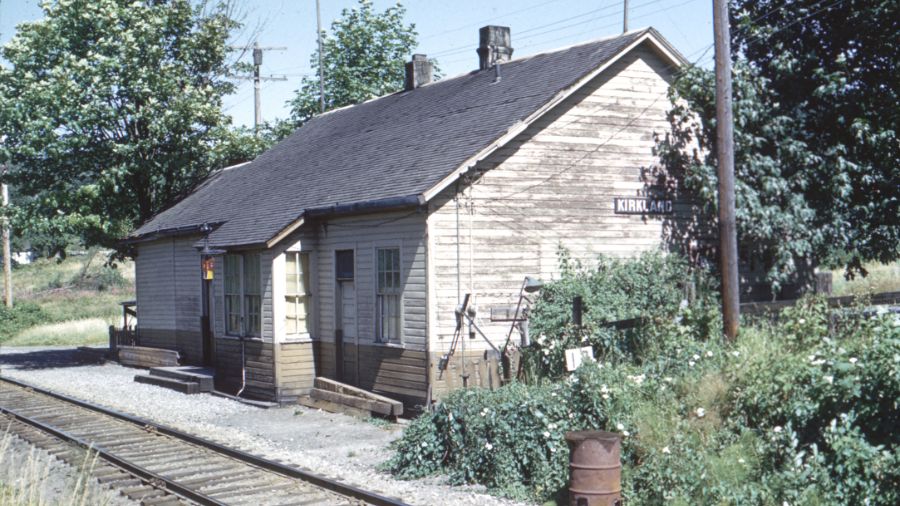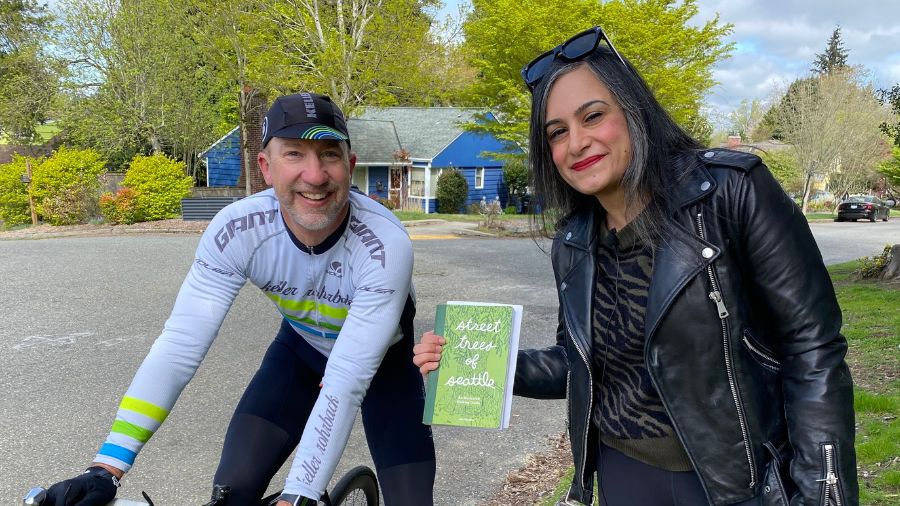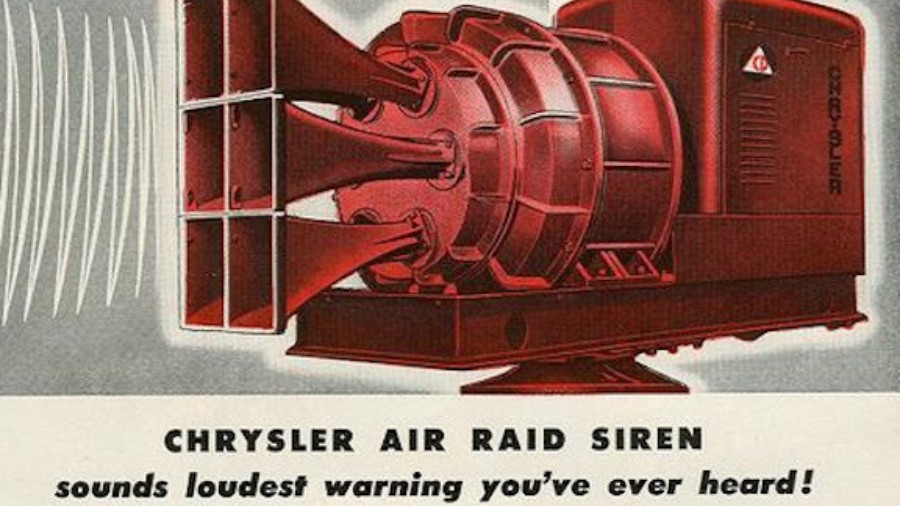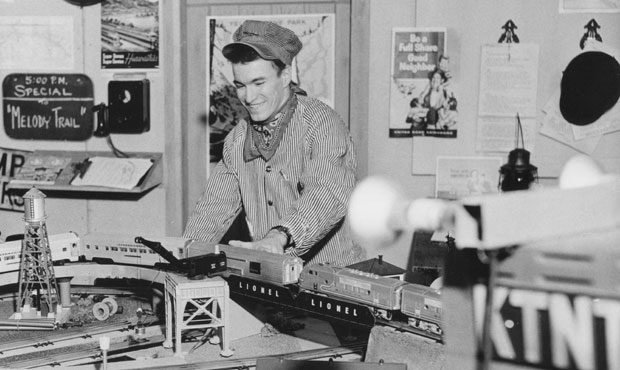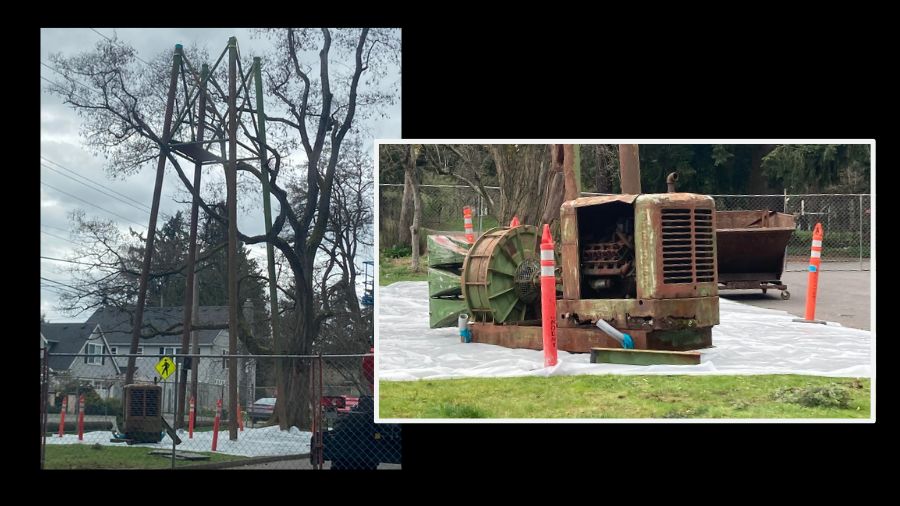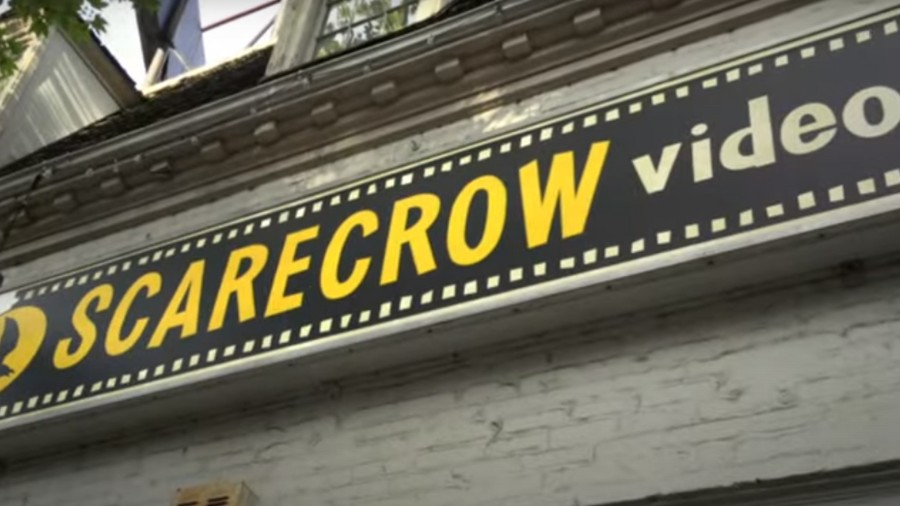Can World’s Fair 60th anniversary be a symbol of Seattle’s post-pandemic rebirth?
May 19, 2021, 9:11 AM | Updated: 11:37 am
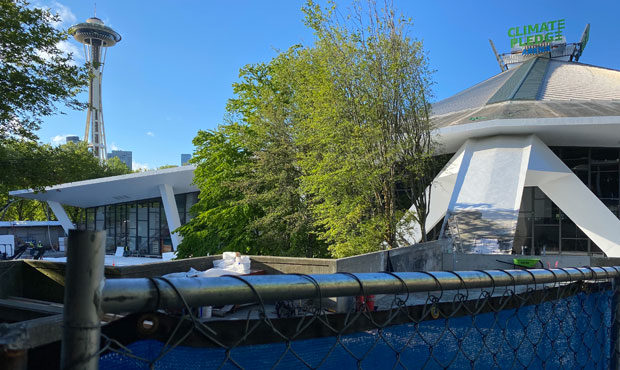
Seattle Center will mark the 60th anniversary of the World's Fair in 2022; is it also a symbol for the city's post-pandemic rebirth? (Feliks Banel/KIRO Radio)
(Feliks Banel/KIRO Radio)
The 1962 Seattle World’s Fair – which, before it opened and succeeded beyond anyone’s wildest dreams, was dismissed by some as the “Mercer Street carnival” – will mark its 60th birthday next year. In preparation of this milestone, KIRO Radio convened a group of surviving World’s Fair staffers to talk about what the “Diamond Anniversary” for the Century 21 fair might look like.
There’s no question that 60 years is a long time ago, and those with living memory of the fair are shrinking in number. Still, many people – and not just historians – remain a little obsessed with Seattle World’s Fair history.
And there are plenty of valid and healthy reasons for this obsession. One is that the spirit of ‘62 is still so present at Seattle Center, with the Space Needle, the Monorail, the fountain, and even the basic layout of the fairgrounds still in place.
The second reason is that Seattle Center is irrefutable physical evidence of a watershed moment in local history, when the city and region radically changed. There’s not much in the way of artifacts from other watershed moments – such as the Klondike Gold Rush, or even World War II – so those major events feel pretty abstract in comparison to Century 21.
The third reason is the people who pulled it off – who made it much more than a carnival – and who kept on doing cool things in Seattle and elsewhere. There are still a handful of guys around who were closely involved with the fair, so KIRO Radio got four of them together by Zoom a few days ago to talk about the past and the future, with an eye to next year’s 60th anniversary.
Junius Rochester is a writer and historian. His father, City Councilmember Al Rochester, had the idea for what became the ’62 Fair as a way of marking the 50th of the 1909 Alaska Yukon Pacific Exposition – Seattle’s first world’s fair – that had been held on the University of Washington campus.
The younger Rochester operated a booth during the Seattle fair promoting the upcoming 1964 New York fair. He has a lot of memories, of course, including opening night at the Opera House with Van Cliburn and Igor Stravinsky, but it’s another near-daily musical memory that really stands out.
“Jackie Souders Band that marched almost every single day through the fairgrounds and changed his tunes and had people join them and stopped to converse with people,” Rochester said. “The music was around us all the time, it enveloped us. It was very, very exciting.”
“It was a physical thing, an audio thing,” Rochester continued, “but a memory that will never leave me.”
Albert Fisher was head of television and movies for the fair. It was one of his jobs to get President Kennedy on the phone to address the opening ceremonies, and he, of course, also escorted Elvis Presley all over while they were filming the Presley movie “It Happened at the World’s Fair.”
Fisher later worked on other fairs and had a long career in television in Hollywood. He says that more recent fairs are far more commercial in tone and tenor. Century 21 in 1962 Seattle, Fisher says, was more special than that in its focus.
“Seattle was, really, one of the last great fairs that did showcase the achievements of mankind in the arts and the sciences,” Fisher said. “And I remember that opening night at the Opera House with Stravinsky and Van Cliburn, and it was an exciting event. But you know, every day at the fair was something exciting and different and unusual.”
Louis Larsen says that every day at the fair was like New Year’s Eve. Larsen is now 96, and he’s the last surviving senior staff member of the fair. Larsen managed advance ticket sales, and then escorted VIPs around the fair – including Prince Philip and Adlai Stevenson. For a few years before the fair even opened, his job was to barnstorm the country with fair chairman Joe Gandy selling sponsorships and exhibit space – bringing in vital cash that kept the fair going in those gestational years.
Larsen described one memorable visit in 1960 to sell a Midwest manufacturing executive on investing in the fair – an executive who apparently had never visited the Evergreen State.
“International Harvester, vice president of, I think, marketing or something,” Larsen said. “And I make the pitch, and he’s in his big chair and he turns around and looks out the window, and he turns back and he says, ‘Now tell me, is it See-at-lee or Spo-kayne that’s on the ocean?’”
With those mispronunciations, “I knew I had a geography lesson to start with,” Larsen said, like the other gentlemen, now laughing heartily.
Rochester, Fisher, and Larsen all have great stories and great memories, but like the fair itself – with its futuristic “Century 21” theme – the anniversary conversation turned to the fair’s legacy – Seattle Center – and how it has continued to evolve during the past nearly 60 years.
“One of the great results inherited from the fair was a civic center like no other,” said Junius Rochester, with a collection of public spaces and facilities that have been in near constant use by a variety of businesses and not-for-profit cultural institutions ever since 1962.
“And it’s still vibrant today in other forms,” Rochester said. “That’s the kind of thing we should probably celebrate when we talk about Century 21, the Seattle World’s Fair, is another chapter in the perfect use of a large tract of land in the center of a great city.”
The fourth gentleman in the group is C. David Hughbanks. He worked for Louis Larsen during the fair producing events, and then, after the fair, Hughbanks became assistant director of Seattle Center – and he was there during the years when Bumbershoot and Northwest Folklife became local institutions.
When C. David Hughbanks looks at modern downtown Seattle and places like Benaroya Hall and the Seattle Art Museum, he sees Seattle Center as a great cultural incubator.
“If there hadn’t been a place for those things to grow, it never would have happened,” Hughbanks said.
Those artistic and cultural groups, Hughbanks said, “would never have gotten there if there had not been a Seattle Center to start with, where they could touch and talk about being in the downtown world. But that doesn’t mean Seattle Center lost anything. Look at all that stuff that’s still there. It’s amazing.”
It is pretty amazing. Stroll around Seattle Center this week and you’ll see the bones of the old Washington State Coliseum still there, nearly ready to re-emerge as Climate Pledge Arena and be ready for the debut of the Seattle Kraken of the NHL this fall.
And while the pandemic means that Northwest Folklife Festival is virtual again this year and Bumbershoot won’t happen again until 2022, other major organizations at Seattle Center are poised to come back. A check with the Pacific Northwest Ballet reveals that they’re bringing back in-person performances to McCaw Hall in late September, and Seattle Opera told KIRO Radio they’ll be back in-person in the same Seattle Center venue with performances of La bohème in October.
And that’s what C. David Hughbanks and the others zeroed in on for next year’s anniversary, and it’s something much bigger than a birthday party for the Space Needle. This year ahead is really about the whole economy and a way of life coming back after being knocked to its knees.
“It’s the 60th anniversary, yes, but it’s the spark of rejuvenation of the city and the place where it all got started, which was the world’s fair then Seattle Center,” Hughbanks said. “And at that very site, here comes all of these incredible institutions in the rebirth, because the facility has never died. It seems to me that’s a positive way to look at it.”
Whatever kind of celebration that the city’s Seattle Center managers might produce in honor of the 60th anniversary, it’s clear that these old world’s fair guys all think big – really big. And while modern society is likely beyond the age of singular events that can radically transform a city and region the way the 1962 “Mercer Street carnival” did, this kind of Century 21-inspired big and forward-facing thinking should never be allowed to go out of style in Seattle.
In fact, it’s exactly what we need right about now.
You can hear Feliks every Wednesday and Friday morning on Seattle’s Morning News, read more from him here, and subscribe to The Resident Historian Podcast here. If you have a story idea, please email Feliks here.


